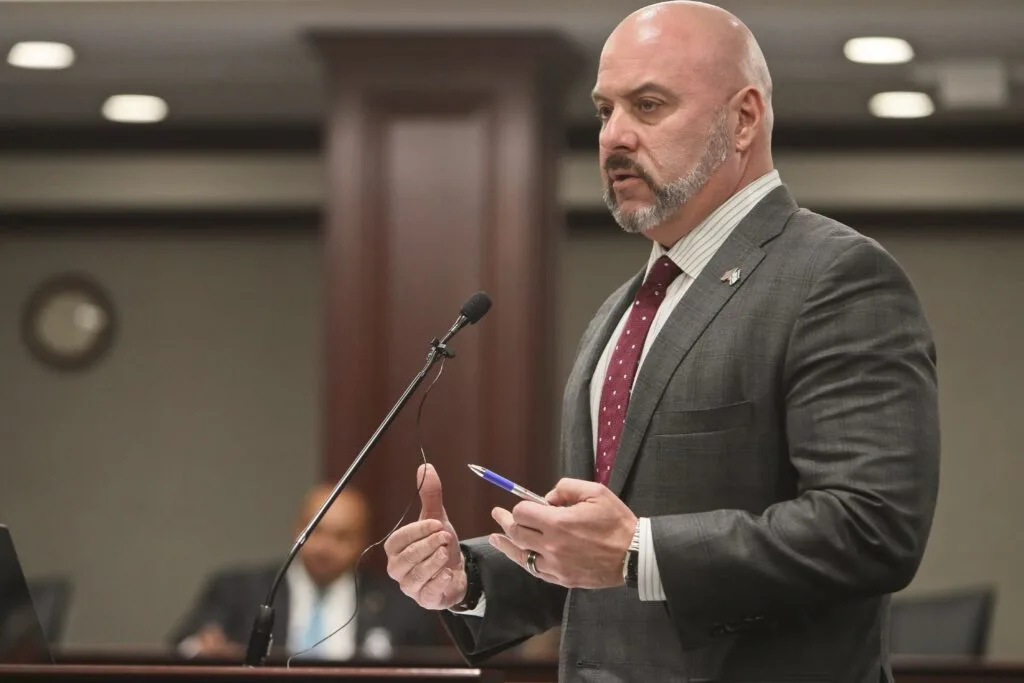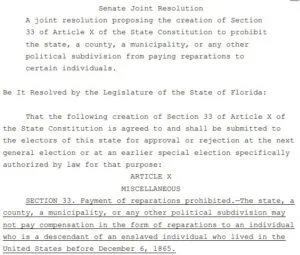In a significant legislative move, the Florida Legislature has introduced a joint resolution proposing an amendment to the State Constitution. This proposed amendment, titled “Section 33 of Article X,” aims to prohibit the state, counties, municipalities, or any other political subdivisions from paying reparations to descendants of enslaved individuals who lived in the United States before December 6, 1865. Senator Blaise Ingoglia R-Spring Hill, filed the bill. In March he filed a bill to eliminate the Democratic Party.

The resolution, if passed, would be a defining statement on the state’s stance regarding reparations, a topic that has been a subject of national debate. The bill proposes that this amendment be presented to the electors of Florida for approval or rejection in the next general election or an earlier special election specifically authorized for this purpose.
The text of the proposed amendment in ARTICLE X, SECTION 33, clearly states that “the state, a county, a municipality, or any other political subdivision may not pay compensation in the form of reparations to an individual who is a descendant of an enslaved individual who lived in the United States before December 6, 1865.”






This development has stirred varied reactions from different quarters. Proponents of the bill argue that it is a necessary step to define the financial responsibilities of the state and its subdivisions clearly. On the other hand, opponents criticize the proposal, viewing it as a setback to the efforts of addressing historical injustices and the long-term impacts of slavery.
Several states and cities in the United States have taken steps towards authorizing reparations related to slavery and racial injustice:
These initiatives reflect a growing recognition of the impacts of slavery and systemic racism, with varied approaches to addressing these historic injustices.



